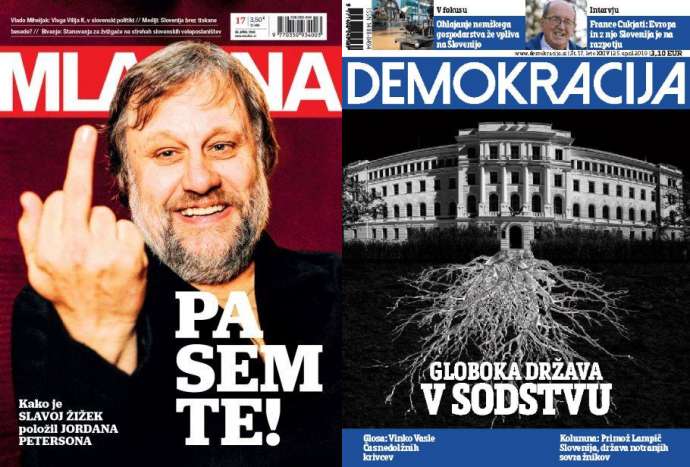Mladina: Chemistry Institute murder trial needs examining
STA, 26 April 2019- The left-wing weekly Mladina suggests in the latest editorial that the judiciary should take a stand on the behaviour of the judge in the Chemical Institute boss murder retrial, finding that its hard for the media to take a stand lest any criticism should be understood as an attempt to discredit him.
Editor-in-chief Grega Repovž says that judge Zvjezdan Radonjić has been conducting the case in an odd way and has not done enough to dispel doubts about his impartiality.
He notes that Mladina has questioned his engaging as an expert witness a man who like the defendant, Milko Novič, has ties with the opposition Democratic Party (SDS).
"When things were becoming increasingly unusual, Radonjić decided to swiftly wrap up the trial and prevent most witness hearings ... What is more, in declaring the decision, in conduct that is unusual in a courtroom he alleged pressure bearing upon the entire court by the media ...
"The very same day he obviously turned into a hero of people's hearts, the judge who stood up to the establishment."
"In a situation in which he declared himself a hero standing up against the system it is hard even to write about him as being unusual - given such 'heroism' any act of drawing attention to his unusual judging would automatically be understood as an act of discrediting."
This is why the media are in a difficult situation taking a position on the case, even though a Večer reporter would not be bothered and she wrote down that the judge should have been suspended because of the show he staged in court.
Instead, Repovž says that the Radonjić case calls for a serious reflection within the judiciary at last.
"Judges decided a few years ago not to take a stand on the difficulties in their ranks. This is human but judges are people whose decisions seriously affect people's lives. So this cup can unfortunately not pass them."
Demokracija: Deep state at work in judiciary
STA, 25 April 2019 - The right-wing weekly Demokracija comments on the allegations of pressure on the judge in the Chemistry Institute boss murder retrial in the latest editorial, finding that deep state remains at work in the Slovenian judiciary.
Editor-in-chief Jože Biščak names Ljubo Bavcon and Alenka Šelih as two jurists who he says were ideologists of revolutionary law under the Communist regime, and who should have been ostracised and banned from public life, but have instead won several prizes and honours.
He says that this is part of the reason for the Slovenian judiciary being in a state as described by judge Zvezdan Radonjić, who in returning the acquittal of Milko Novič, gave a dramatic account of the pressure and covert threats he had been subject.
"That was not the 'ordinary' kind of pressure, but pressure from the deep state via his judicial colleagues and superiors.
"Everyone should have beaten the drum for that, all the alarms should have gone off. However, nothing happened. Well, almost nothing," Biščak says, referring to Radonjić's superiors finding that nothing dramatic happened in the Novič case, and saying that they would no longer communicate with the public about internal procedures in the case.
"Mind you, the case that disclosed the workings of the deep state in the judiciary and how someone from behind the scenes is trying to interfere in the judgement, is an internal matter of the court!
"Not at all, dear gentlemen in Tavčarjeva 9 [the address of Ljubljana Court], it is a matter of interest to all the citizens, so you will have to provide public and regular explanations about what is going on.
"If ever, now is the right time to sweep up in the judiciary, which due to many infamous cases and systematic violations of human rights is justifiably referred to as misjustice by part of the public.
"The Slovenian judiciary has never been cleansed, has not taken the road to Damascus (like Saul, who on the road to Damascus converted from a persecutor of Christians to become the Apostle Paul), let alone being lustrated," Biščak writes under the headline Road to Damascus.
All our posts in this series can be found here, and our stories on the Institute of Chemistry are here







